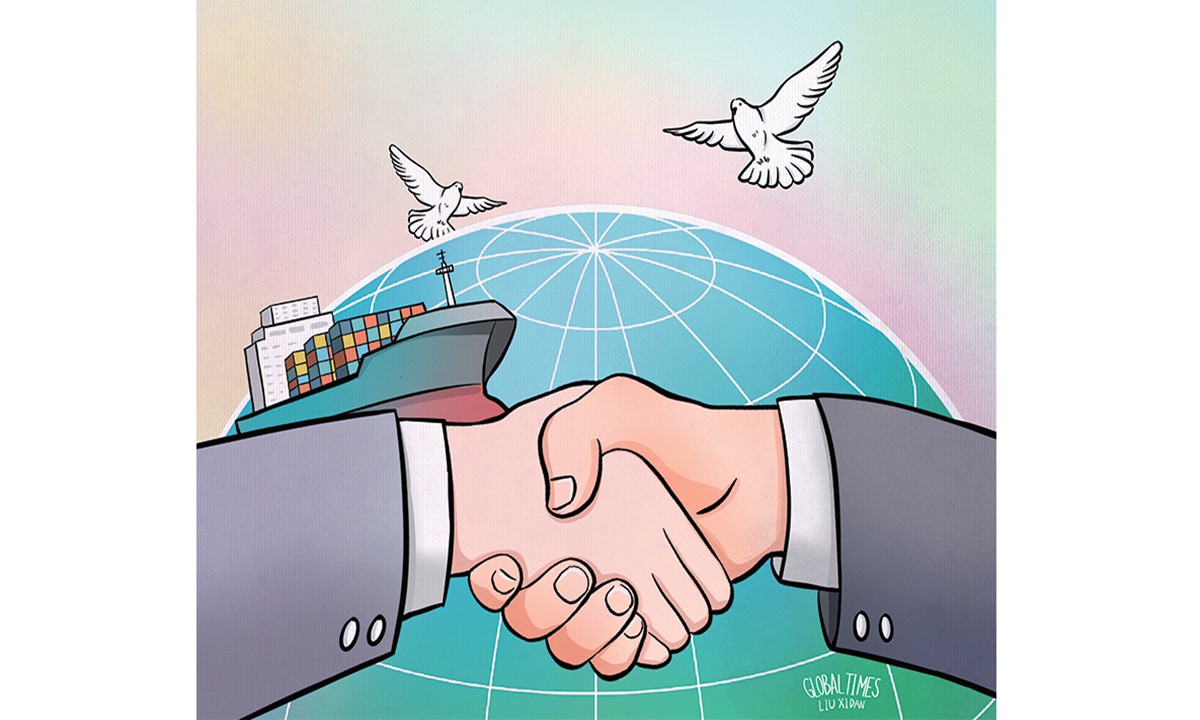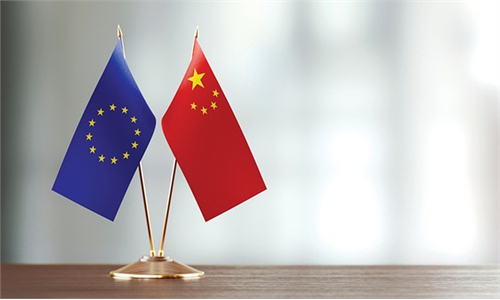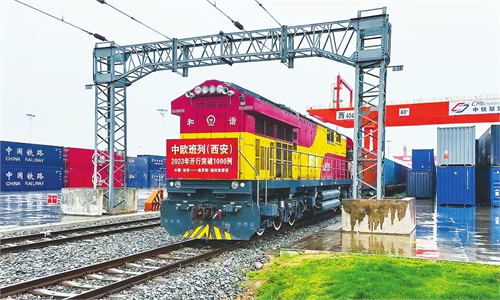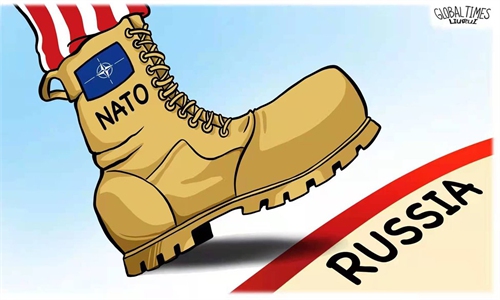
Illustration: Liu Xidan/GT
For some time, China-EU ties had been on a downward spiral. Yet the deadlock in China-EU ties started to change after German Chancellor Olaf Scholz and President of the European Council Charles Michel visited China respectively at the end of 2022. Around this month, European leaders have been coming to China one after another, including Spanish Prime Minister Pedro Sánchez, French President Emmanuel Macron, and President of the European Commission Ursula von der Leyen. High Representative of the EU for Foreign Affairs and Security Policy Josep Borrell will also pay a visit to China soon.First, the recovery of the European economy urgently needs the Chinese market. A few years ago, the US government took the lead in implementing economic protectionist policies, which severely damaged economic globalization. Later, the COVID-19 pandemic trapped the global economy in a certain degree of decline. Then, in the wake of the Russia-Ukraine conflict, the EU has imposed rounds of sanctions on Russia, exacerbating existing energy problems in itself.
Under the impact of these factors, coupled with the influence of the REPowerEU, a plan to rapidly reduce dependence on Russian fossil fuels and fast forward the green transition, the European economy is facing increasing challenges, including sustained inflation, labor shortages, high electricity prices, rising raw material prices, soaring government debt, and shrinking export markets. These have led to the stagnation of the European economy, which in turn seriously affects people's livelihoods, threatens the long-term welfare system, and affects the fiscal capacity of various European governments. As Europe remains an important economic and trade partner of China, maintaining and developing economic and trade cooperation with China has become a vital choice for Europe to get out of economic difficulties.
Second, Europe needs to strengthen cooperation with China in order to advance its strategic autonomy. Since the outbreak of the Russia-Ukraine conflict, Europe has used important resources, especially military resources, to support Ukraine against Russia. As a result, Europe's relationship with NATO and the US has become increasingly close in terms of defense and politics, but progress in its own defense integration has been lackluster.
Meanwhile, strengthening transatlantic relations and relying more on the US has brought additional pressure to Europe and is not in its best interests. In order to advance strategic autonomy and safeguard its strategic interests, the EU needs to strengthen its relationship with China so as to break free from US control.
Third, Europe needs China's support to help resolve the Russia-Ukraine conflict. The conflict is the most severe regional security threat Europe faces since the Bosnian and Kosovo wars in the1990s. The protracted conflict is damaging Europe's fundamental interests. Given China's objective and impartial position in the conflict, it is an important partner in helping resolve the conflict together with Europe.
Fourth, the EU needs China in solving global governance issues. The EU is ambitious in the field of climate change governance, trying to become the international leader in this field. China, as a participant in climate change governance, is an indispensable partner for the Europe. In addition, in maintaining biodiversity, international peacekeeping operations, resolving global hotspots, global poverty reduction, and negotiations within multilateral institutions such as the United Nations, Europe must try to win China's support.
Although China-Europe relations are gradually warming up, some structural contradictions between the two cannot be ignored. Given EU's rising geopolitical consciousness, the EU and some of its member states may take a tougher stance on China in the field of human rights and politics. In addition, under the guidance of the de-risking mentality, Europe's "decoupling" from China in technology and trade will continue to level up. Moreover, under the backdrop of the major power game between China and the US, the strengthened transatlantic relationship will lead to more US pressure on Europe.
Europe has come to the moment when China is needed the most. In any case, as the world's two major powers, a healthy development of China-EU relations is not only in line with the respective economic development interests of both sides, but also conducive to bringing considerable certainties to a world full of turbulence and uncertainty, helping recover the global economy, injecting rare confidence into the global market, and maintaining world peace.
The author is an associate professor and deputy director of the Center for China-Europe Relations, Fudan University, and Under-Secretary General of Shanghai Institute for European Studies. opinion@globaltimes.com.cn



